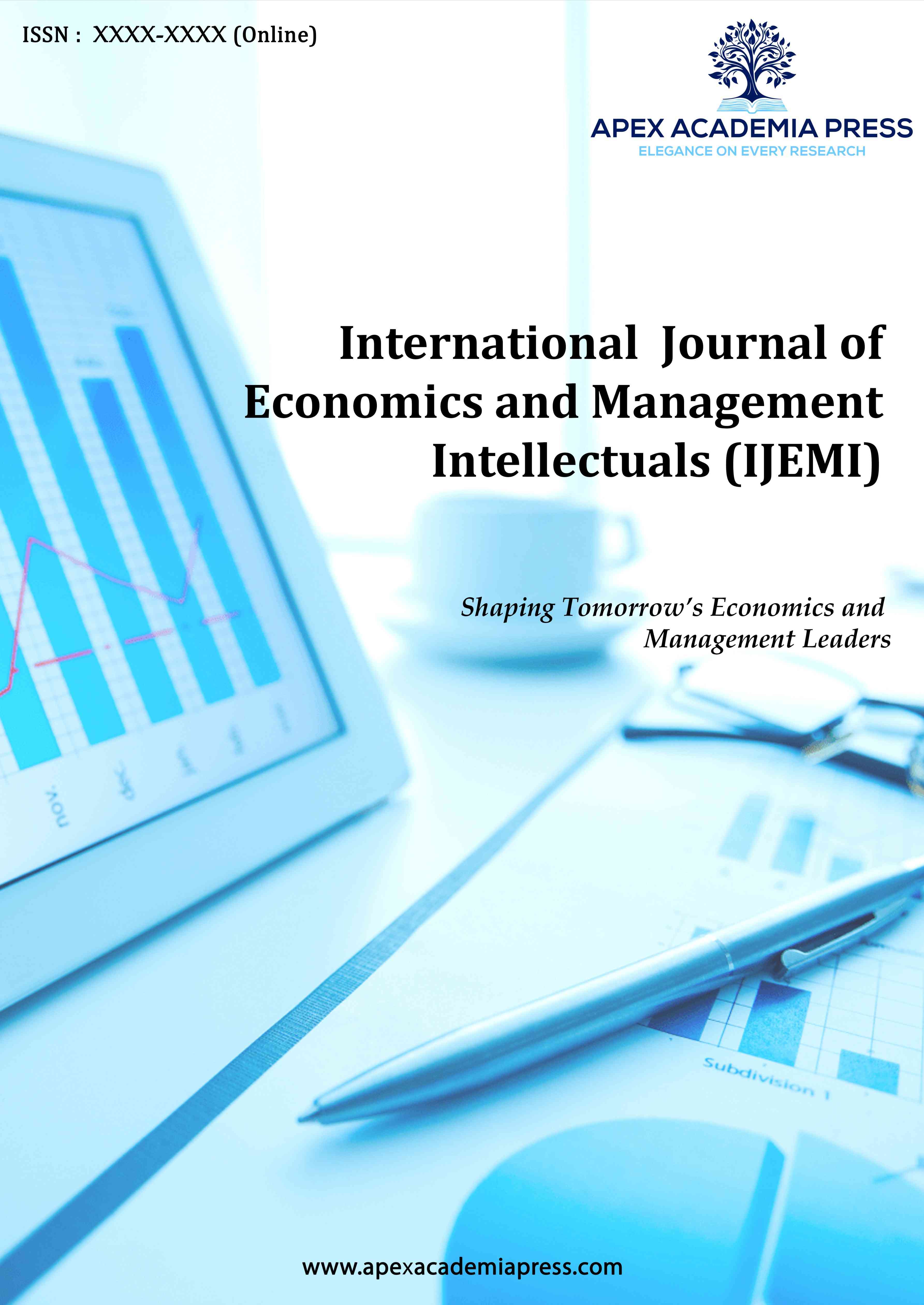International Journal of Economics and Management Intellectuals [IJEMI]
The Role of Management in Post-Pandemic Economic Recovery
Authors : Chinedu Adeyemi Okonkwo
Open Access | Volume 2 Issue 1 | 2025
https://doi.org/10.63665/ijemi_y2f1a003
How to Cite :
Chinedu Adeyemi Okonkwo, "The Role of Management in Post-Pandemic Economic Recovery", International Journal of Economics and Management Intellectuals [IJEMI], 2025, 2(1): pp. 15-20.

Abstract
The COVID-19 pandemic has etched an irreparable imprint on the global economy, disrupting almost every sector and remoulding business paradigms fundamentally. While the global economies transition into the post-pandemic recovery stage, the significance of management in navigating businesses through this recovery is paramount. In this paper, various methods through which management can spearhead economic recovery through strategic decision-making, innovation, and visionary leadership are being examined. It looks at how companies have managed to adapt to the new environment, with a focus on digital transformation, finance management, and restructuring of the firm. By using case studies, the paper identifies successful recovery measures and addresses challenges that firms are encountering as they recover. The paper ends by providing insights into ways that the management can construct a resilient and sustainable economy post-pandemic.
Keywords
Post-Pandemic Recovery, Economic Recovery, Management Strategies, Digital Transformation, Leadership in Recovery, Organizational Restructuring, Innovation, Risk Management, Business Sustainability, Strategic Decision-Making.
Conclusion
A. The Strategic Role of Management in Post-Pandemic Economic Recovery:
The pandemic of COVID-19 affected the world economies in such a manner that it was challenging for organizations to respond with agility, innovation, and resilience. In this respect, the management function has been important not only in rescuing companies from the current crisis but also paving the way for future development. Managers are no longer just controllers of day-to-day operations; they are the drivers of companies through turbulent and dynamic times. As companies struggle to come out of economic battering, managerial leadership is a determining factor in formulating responsive strategies in harmony with changing market trends, customer demands, and technological advancements. The post-pandemic answer is not playing catch-up on losses but rebuilding with a forward-looking mindset that prioritizes sustainability, digitalization, and innovation.
B. Adaptability and Forward-Looking Management:
Flexibility is one of the pandemic lessons. Firms that could switch gears in a matter of days—by adopting work from home, reconfiguring supply chains, or redesigning customer interfaces—are in good shape to weather the shock. Managers need to make flexibility a core organizational capability. This might include scenario planning, risk management, agile project management, and cross-functional collaboration. Anticipatory managers also monitor trends—technological, social, and economic—ones that might transform their industries down the line with a very high level of information and proactivity. They position their firms to be able to respond quickly and strategically to whatever new challenge or opportunity arises. Flexibility, therefore, is not a permanent feature but a lasting mindset that needs to be fostered in the entire organization.
C. Shaping a Robust and Resilient Post-Pandemic Economy:
Finally, individual actions of managers in all sectors will determine the course of the world economy. With innovation leadership, sustainability, digitalization, and flexibility, managers can lead their organizations not just to recovery but to sustainable prosperity. Their choices impact job creation, standards in industries, and economic fairness. By keeping forward planning and accountable management front and center, their organizations are less vulnerable to likely future shocks, and well-positioned to provide a better quality, more resilient economic system. The way through a healthy post-pandemic economy is by means of bold, motivational managers who can instill change, who can handle complexity, and create profitable yet meaningful institutions.
References
- Mahajan, R., Lim, W. M., Kumar, S., & Sareen, M., COVID-19 and management education: From pandemic to endemic. International Journal of Management Education, 2023, 21(2): 100801. https://doi.org/10.1016/j.ijme.2023.100801
- Okafor, L., Khalid, U., & Gopalan, S., COVID-19 economic policy response, resilience and tourism recovery. Annals of Tourism Research Empirical Insights, 2022, 3(2): 100073. https://doi.org/10.1016/j.annale.2022.100073
- Mahajan, R., Lim, W. M., Kumar, S., & Sareen, M., COVID-19 and management education: From pandemic to endemic. International Journal of Management Education, 2023, 21(2): 100801. https://doi.org/10.1016/j.ijme.2023.100801
- Buffie, E. F., Adam, C., Zanna, L.-F., & Kpodar, K., Loss-of-learning and the post-Covid recovery in low-income countries. Journal of Macroeconomics, 2022, 75: 103492. https://doi.org/10.1016/j.jmacro.2022.103492
- Anser, Z. K., Economic recovery post-COVID-19: Challenges and pathways to resilience. Journal of Economics and Economic Education Research, 2023, 24(4): 1–3.
- Ganum, P., & Thakoor, V. V., Post-Covid-19 recovery and resilience: Leveraging reforms for growth and inclusion in Sub-Saharan Africa. IMF Working Papers, 2021.
- Mitze, T., & Makkonen, T., Can large-scale R&I funding stimulate post-crisis recovery growth? Evidence for Finland during COVID-19. arXiv preprint, 2021. https://arxiv.org/abs/2112.11562